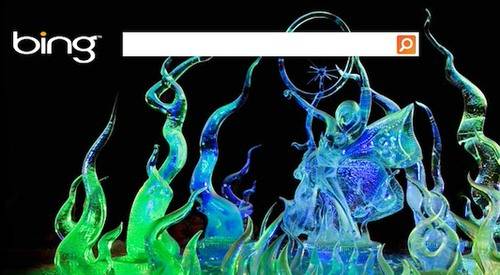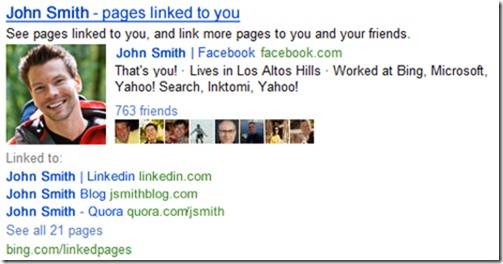Bing launched Bing+ last week, it just skipped all the unnecessary stuff. (It’s not really called Bing+.) There’s a new feature called Linked Pages that allows Bing users (U.S. only, for now) to connect their various websites and profiles to their Bing identities, using Facebook for authentication. You can also link your Facebook friends to their pages.

Thanks to its relationship with Facebook, Microsoft has the advantage of not needing to build its own identity provider or social network. Everyone’s already on Facebook. To build good results for people, Bing will use the same technique Facebook Groups use: get friends to draw their own graph. Just like with Facebook Groups, if a friend connects you to something you don’t want, you can remove it permanently. We all thought that feature would suck for Groups, but it worked just fine. Facebook Groups build themselves, and Bing can build identities the same way.

Social Network Overkill
The interesting thing is, this is exactly what Google+ is for, but the product isn’t being pitched that way. Google’s social layer is all about establishing the Google-presence for people and brands, so they can appear across Google-land, especially in Search, plus Your World. But Google+ is spun as a place for “sharing.” It has all these pieces of a social network, but people aren’t using them.
It’s a shame, because some of these features are absolutely wonderful. What could be more social than Hangouts? Google+ is full of great ideas, but it is struggling to bring them together. The user experience isn’t there. And that’s all because Google felt the need to build a full-blown social network itself in order to act as an identity service.
Couldn’t Hangouts have just been a Gmail feature?
Social Search Is All We Needed
There’s no need for a new social network, but there is a reason to put personal identities in search. Searching for people has always been a terrible experience. It’s nearly impossible to find the person you’re looking for, unless they’re famous. Search engines need an identity layer.
Bing is just being honest about that. If you want to control the way you appear in search, you can connect the sites and pages that matter to you via Facebook. Your friends can do it, too. When you use Bing to search for people, now you’ll be able to find the content that’s related to them. That’s what Search, plus Your World does for Google, but Bing does it without requiring this new, extra place to waste time online.
Google could have done that. The Google+ profile works exactly the way Bing’s Linked Pages does, allowing users to link their outside sites and pages to themselves. It could have just made a Facebook app, and boom, there are your social search results. But that’s not how the business works. Google and Facebook can’t cooperate. They have to compete for eyeballs around social content, and Facebook is winning.

















